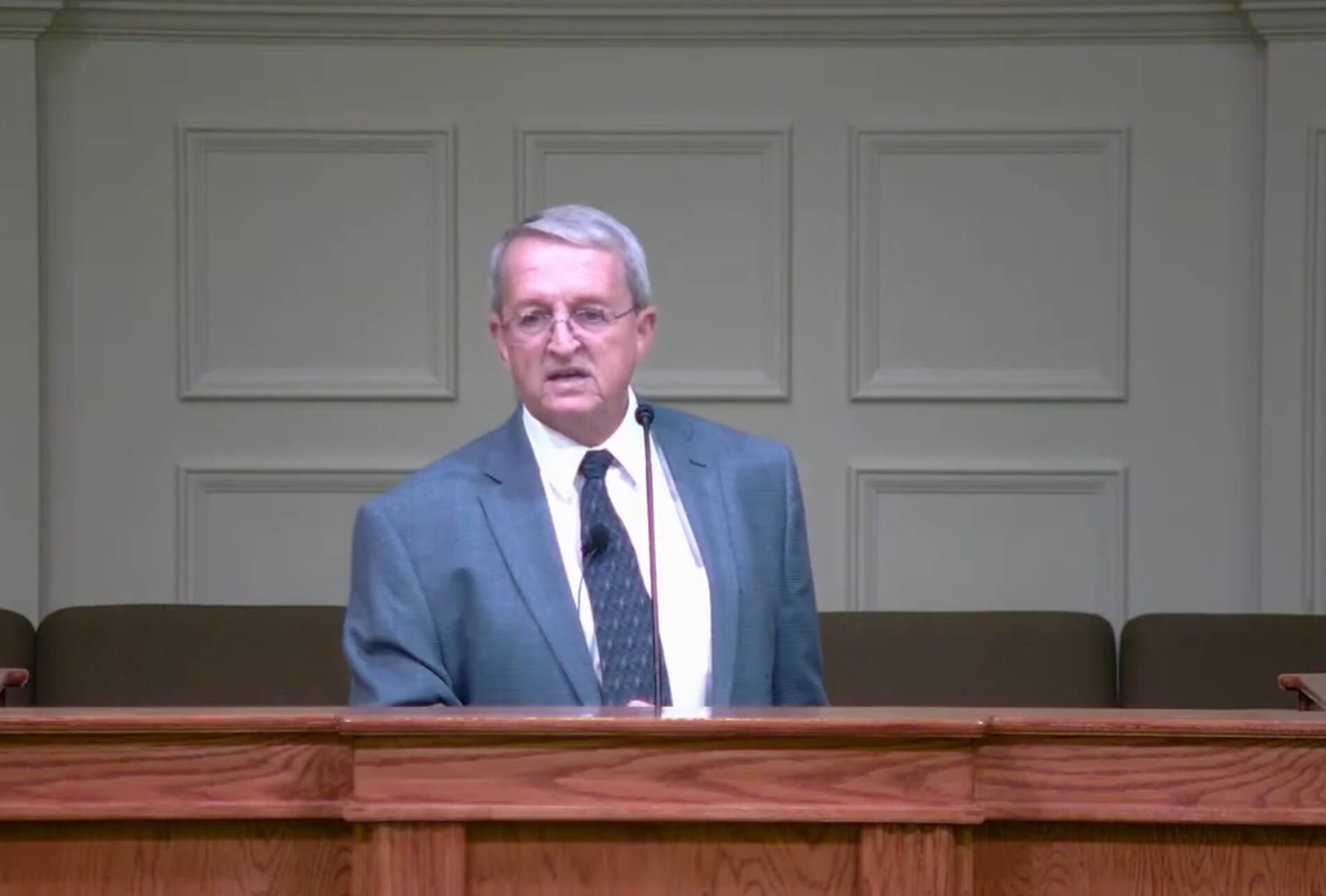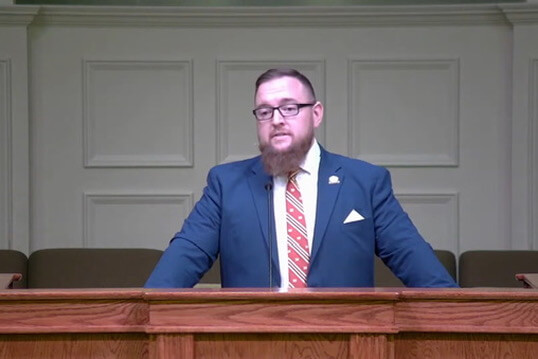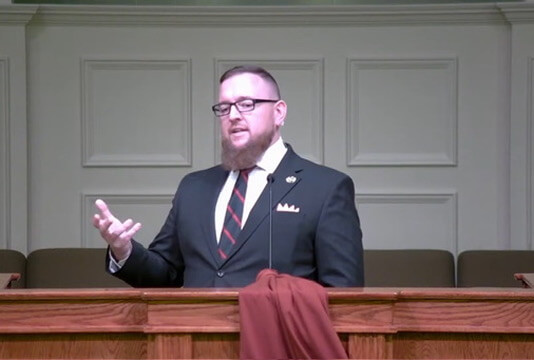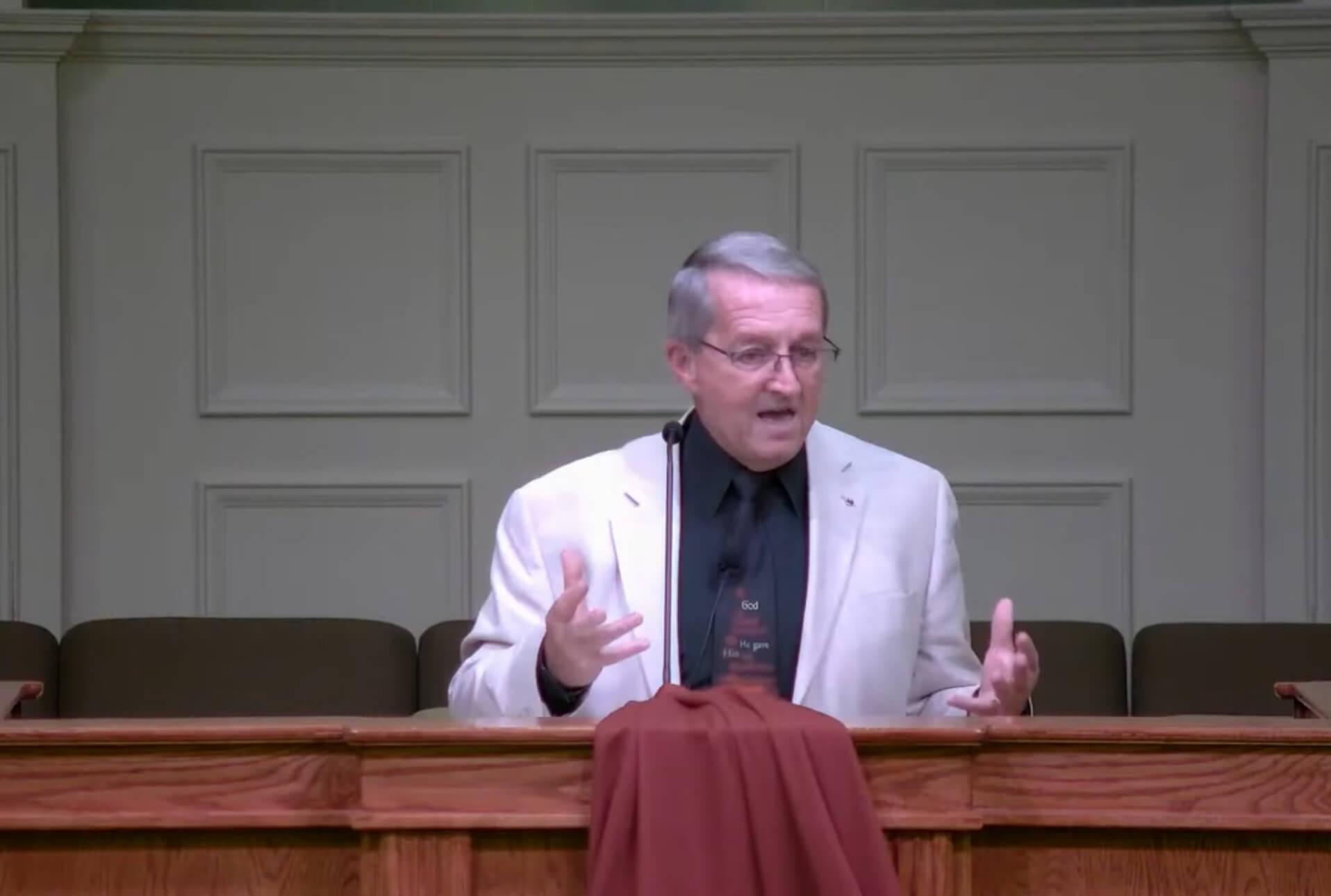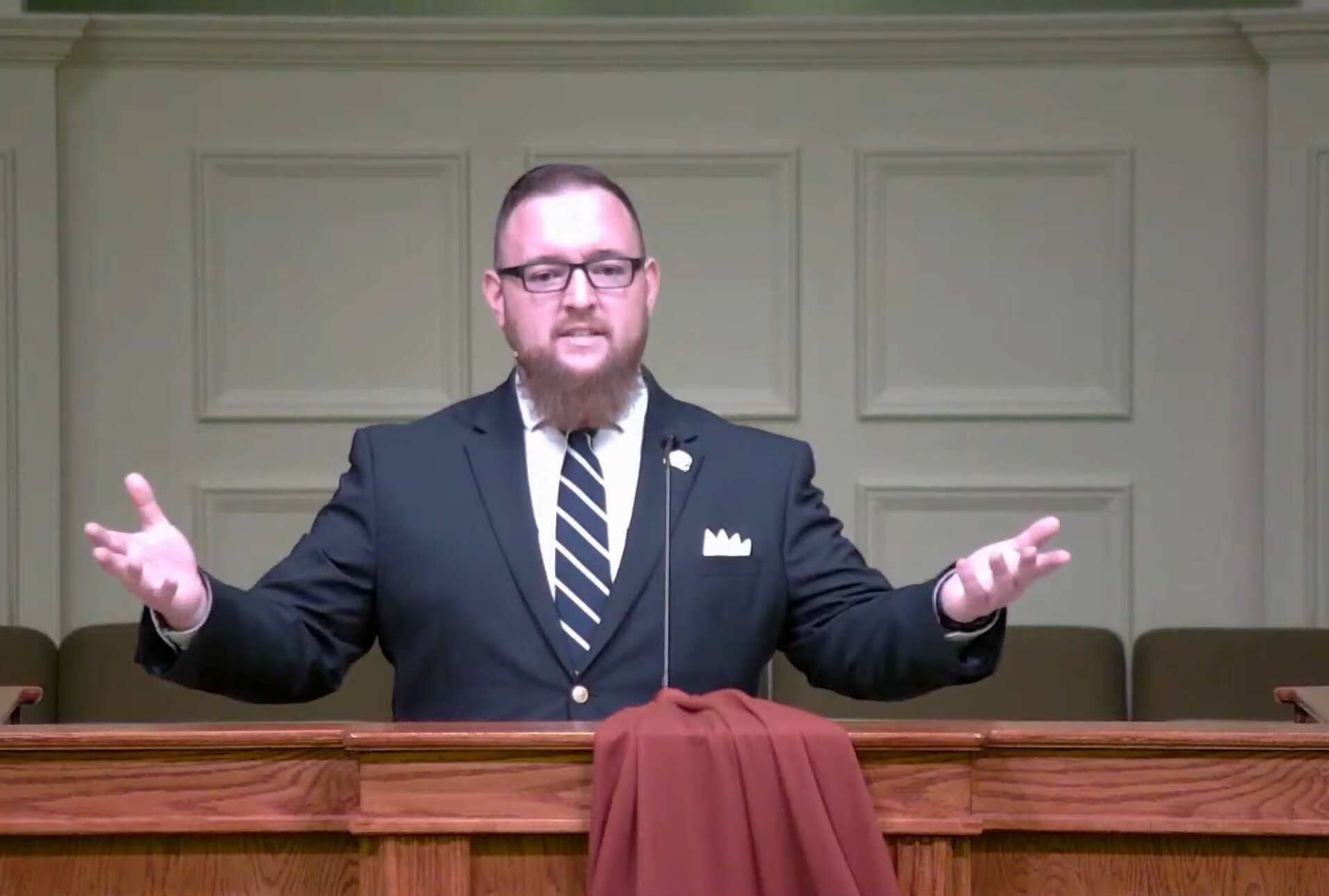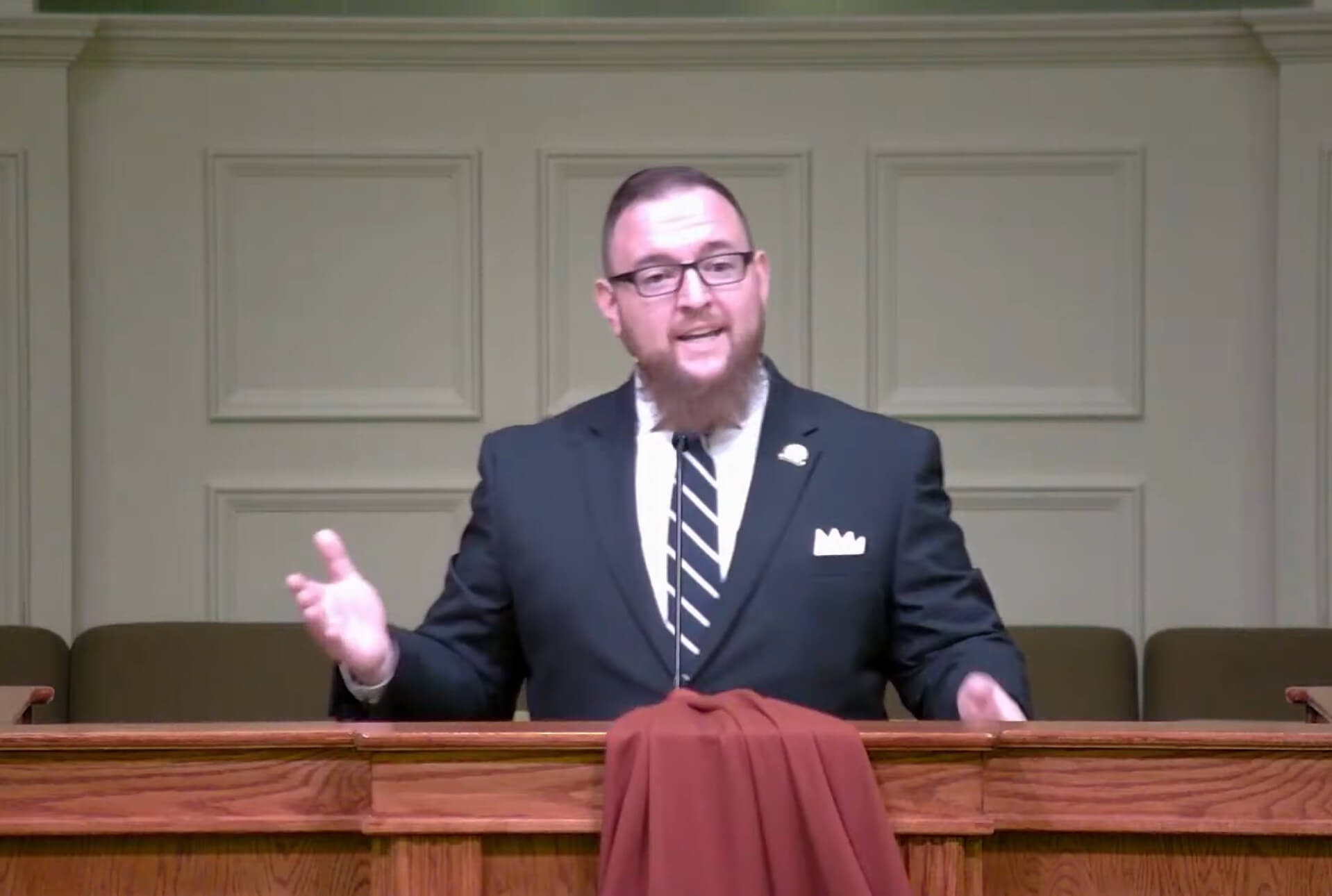Video
“The Betrayal and Blessing”
Mathew 26:14-30, 47-57
Pastor Richard C. Piatt II
04/07/2024
Audio
Transcript
The author of that song, as they recorded it, well, as they wrote it, rather, there was this sense that they wanted us to be transported in our mind and our thoughts back to the cross and then to the resurrection at the tomb.
This morning, that is a bit of my desire to do this morning as well. We’re gonna move backwards as we spent last week looking at the resurrection and the greatest lie ever told about how that they were told, the soldiers were told to tell a lie, just say that his disciples came and stole his body. That’s a tremendous lie. And Matthew, in the Gospel of Matthew said, and people actually still believe that to this very day.
Well, there’s other lies that are connected to the, The whole account of what’s going on and we’re gonna see a couple of those today But we’re going in our exposition through the gospel according to Matthew verse by verse We’re gonna go back now because I had to accelerate to get to where we would be to celebrate Easter But we’re gonna go back now and it would be my desire and some of the things I’m gonna say today that I want us to see I Want us to hear I want us to smell, I want us to feel the drama of the text.
Just like that song, you know, were you there when my savior came out of the tomb? Glory! We sing it as a bunch of conservative Baptists, glory, glory, glory. But you know, it’d be nice to really have that grip our hearts. But what I want us to do is to consider something that historically, and a lot of history from the first century, that would cause us to, I wanna say wake up, but I want us to be gripped at just how bad what we’re gonna consider today. And Pastor Ryan mentioned it. that the Apostle Paul in giving us the Lord’s table. And it says, for I have delivered unto you that which I have received of the Lord. Now that’s post-resurrection. That’s actually post-after the ascension. Jesus is in heaven, and Jesus reveals himself to the Apostle Paul. Jesus now has given the message to the Apostle Paul to write 1 Corinthians. And he says those words and it always just boggles my mind. For I received of the Lord that which I also delivered unto you. And where does he start all of this about the communion table? In the night in which he was betrayed.
Now that would have been Jesus glorified, giving revelation to Paul. And what is it? Where does he begin? And we’re to celebrate this, do this in remembrance of me, but also of the events. And today, what I want us to do is to have a twofold historical reference look of what the Apostle Paul gives us in First Corinthians chapter 11 and verse 23 concerning in the night in which he was betrayed. And let’s consider the betrayer and just what the scripture has to say about that. I mean, I want us to be in a sense gripped at the timing and the historical event.
Last year, we took on a very ambitious, obviously ambitious for me, and I even expanded it more, to read the Bible twice, but also to read two books a week. But I didn’t want you to think I was reading paperbacks and everything, and there was a particular book that I was wanting to read. And it wasn’t to impress, it’s just that I had been doing a lot of listening and some involved in going back and forth listening to some Catholic theologians just to see what they had to say. And so I always wanted to read, never did in my college days, to read a book called, and maybe some of you have read that, Dante’s Inferno. You know, just some light reading and gigantic book. Now actually, Dante’s Inferno, I was amazed. Actually, it wasn’t what I really expected. Now, Dante, who wrote this, was an Italian writer. He was kind of a statesman, political guy, was a Roman Catholic, but was not a priest. I kind of thought he always had been, but he wasn’t.
He completed the work Dante’s Inferno, which was part of what was called a divine comedy poem. But their use of comedy was not what we do. Comedy means. Yeah, no. This was very, very bad. I mean, very, not laughter kind of comedy. And it was made up of Dante’s Inferno, in reference to hell, Purgiato, which was in reference to purgatory, and Paradiso, which was about paradise and heaven and how that all took place. Dante died in 1321. And it consisted in the three parts that I just gave to you, but it was all a long poem, actually, recounting the author’s journey among the judged in hell, guided by the Roman poet Virgil, and later he is reunited to his beloved Beatrice. So I’m only going into this a little bit, just so that maybe some of you said, I don’t think, oh, I kind of remember a little bit of this. Well, who guided him up to purgatory and then to paradise where the moment of ecstasy was for Dante that he gets a glimpse of God.
Now, again, this is 1321. Long time dark ages with Roman Catholicism ruling and reigning It was never really considered a strong religious work and it was not to be taken even by today’s standards Someone said how much of this is literal? Wikipedia said none of it Well, you know, of course, they doubt probably even in the existence of hell. And we know that there is a real hell. But what was interesting, you say, okay, pastor, this is nice, and I’m feeling the culture, but why are we talking about it? Well, I didn’t really kind of get what it was kind of about, but it was about in a sense, the punishment in hell and what we’re delivered from, and treachery is punished at the very depths of hell. and the lowest parts. And it talked about the different parts of hell. And it kept going down, down, down. There were nine sections and it keeps going on. And it was amazing what it would say and what it would go on. Traitors were punished in a… And again, this is not good theology, but I’m going for the picture. This will wrap up.
The traitors were punished in a frozen lake. at the bottom of hell, and the reason why the lake was frozen was because Lucifer, we would call him Satan, many would believe that to be the pre-fallen Satan’s name, but Lucifer and his wings kept the water frozen, but he is trapped in it up to his waist. from the ice, that’s in Canto 34. And this is what it says. Oh, what a marvel it appeared to me when I beheld three faces on Satan or Lucifer. Now again, this is bad theology, but this is what they were thinking about. Dante exclaims in horror, watching Lucifer’s three mouths gnawing on traitors and the center one, which did not speak, but yet with the six eyes of Lucifer, he wept in the three chins as blood trickled down as he gnawed on the one traitor that exceeded all in all of time. He was killing Judas Iscariot.
Now, again, it’s a poem. That’s a comedy. You know, boy, talk about words taking on new meaning that was considered a divine comedy. But it it gives an idea. Of the putrefying, horrific, gut wrenching. Now I’m using words, people like John MacArthur, James Montgomery, boys, R.C. Sproul, everyone, when they start to come and they talk about Judas. Scum. And yet, when it came time, when Jesus said that one I have chosen all of you, one of you is a devil, but the other disciples couldn’t see it. When it came time to have somebody watch the money. It was given to Judas. And even when he went out and he was making the deal to betray the son of God through for three pieces of silver, they didn’t all go. Yeah, we know it’s him. Lord, is it I? Is it I? And he finally says, yeah, it’s you. And we’re going to see this in the text today. Now, that was the history in the first century. Were you there when the betrayer betrayed?
But yet at each time we come to the Lord’s table, I deliver unto you that which was also given unto me, that in the night in which he was betrayed, Christ took bread. We come and celebrate this, but it has a historical context. Something had happened right before that, that is so horrific. And then something right after that, a tremendous blessing. So horrific that Jesus is gonna say, it would have been better if that man had never been born. It would be better to have nonexistence than to have the existence as a man who would dare sell the son of God for 30 pieces of silver.
Well, who is this one and what is the context that it is found? Take your Bible and turn with me to the Gospel of Matthew. chapter 26, the Gospel of Matthew chapter 26 and we’ve considered if you remember we took photographs as it were and we looked through the album collectively of these things because we have considered these things before but in chapter 26 it is a unit just like what we saw in the Olivet Discourse that’s in a context. And you got to keep the context straight or you’ll read things into there that may be true but that’s not what the text is talking about. And that same thing is true here.
That Matthew has a masterful book. Not only is this the inspired, holy, inerrant, sufficient, and authoritative word of God, it is a wonderful piece of literature that he is building a case that is going to the point, having gone, therefore, make disciples, baptizing those disciples that you have made in the name of the Father, the Son, and the Holy Ghost, and teach those disciples all things whatsoever I’ve commanded you, and I will be with you always. And he’s talking about the establishment of a kingdom. And so Matthew has got this thing put together, but it really shows up in this passage.
In Matthew 26, verses 1 through 5, we have the hatred of the religious leaders. Now it came to pass, Jesus had finished all these sayings that he said unto his disciples, you know that after two days, and the Son of Man will be delivered up to be crucified. And then the chief priests and the scribes and the elders of the people ascended into the palace, and then the high priest, who was called Caiaphas, and plotted to take Jesus by trickery, and they wanted to kill him, but they said, not during the feast, lest there is uproar among the people. So they didn’t want to do it during the feast. They ended up doing it during the feast. Why? the other circumstances worked out. I saw one preacher who preached a thing and Jesus had him right where they wanted to be. It’s like they think they’re in control. No, this is all been prophesied by Old Testament. It all has the goal and Jesus Christ is in the same.
But there is this tremendous hatred. And then the next verse, we go on verse 6 and then Jesus was in Bethany at the house of Simon the leper and a woman came having an alabaster flask of a very costly ointment and she poured it on his head as he sat at the table and then of course the disciples get all upset and they said all that could have been sold and given to the poor and he says no She’s going to be remembered for this because you see, she’s preparing me for my burial. So right on the heels of these wicked religious leaders just want Jesus dead. They’re going to take him by trickery. It’s not that he deserves to die. It’s he deserves to live. But we want to kill him. And then there’s a woman who takes a year’s worth of of of money and perfume and anoints it on his head. because she loves him dearly. And then so we have the love of Mary that’s there through verse 16. And then right after that, we have another picture in Matthew chapter 26. And it says that in verse 13, that assuredly I say to you, wherever this gospel is preached, the whole world, that this woman, What she has done will be also told as a memorial to her.
Then we get another picture, and this is where we want to come to today. Then one of the 12 called Judas Iscariot went to the chief priests and said, all of the disciples. Now I found that some preachers that say the first words out of Judas’s mouth was, Lord, she shouldn’t be pouring that thing on you. We should give it to the poor. Well, he did say that, but it also says in the Gospel of Matthew, all the disciples were in agreement. But now we do have clearly. Words out of a man who’s been following Jesus day in, day out. And this has the stench of hell. He goes to those that we were introduced to in the first five verses. We want to take him, we want to kill him. Oh, not now, because that would, of course, would taint our religiosity. But we want him dead. And he goes and says this to those people. What are you willing to give me that I may deliver him to you? How much is how much you willing to part? What’s my cut? I’ll get him to you. How much?
There are, words fail. For 16, and so from that time, he sought opportunity to betray him. He sought the opportunity. God directed the details. Now that has caused a lot of questions. We’re going to mention that here in just a few moments. So what I want us to do today is I want us to have a remembrance of the betrayal of Judas Iscariot. Now, some have tried to get Judas Iscariot out of trouble on this. In fact, there are at least four things, four ways that they’ve tried to get Judas off the hook. One, some say that Judas was having his own, was saving his own skin. In other words, the public tide was turning against Jesus and the disciples, of which obviously the first five verses prove that. And he’s getting a little bit frightened. I don’t think Jesus is going to be able to pull this off. And so if I’m going to survive, then I’m going to turn him in and then I’ll be friends with the scribes, Pharisee, hypocrites, and then however the kingdom is really going to come in, because it’s not looking like that this Jesus is going to do it.
Now, we all we know that that Judas was never born again. He wasn’t saved. Now, he looked saved, but he was not. The whole thing is a picture of betrayal, of of hypocrisy to the nth degree and just how good hypocrisy can look. And so some would say, so don’t blame Judas. He was just trying to save us. You know, self-preservation is really important. We all will do anything to preserve our own lives. So that’s what Judas was trying to do. Well, others have said no. He was trying to force the inauguration of the kingdom by trying to speed things up. In other words, come on, Jesus. Come on, Jesus. We want to get into the kingdom. You keep saying you got to go through this other stuff. So let’s get it going. Now, we all know that all of the disciples were a little bit hazy. OK, they were a whole lot hazy over what all this thing is, is go to Jerusalem, die, be buried, rise again. We don’t get that.
But then after that, the kingdom comes. Right. And so let’s get this show on the road. It’s taken a little bit too long and the clouds are getting dark and and so Some believe that Judas just was thinking, hey, I think I will just speed up the process, even though Jesus never asked him to. And he says, I think that’s what’s going to go on. Well, there’s several reasons why that’s kind of a lousy thing, especially in the upper room. When everyone’s wanting to know who’s going to betray, he says, one of you is going to betray me. And they say, which one? And the Lord is that I, is that I, is that I? And he says, yeah, it’s you. And then he departs.
Well, the other disciples think that he’s going out to buy some. It’s a slow group, but they did not select him. But it wasn’t that Jesus made up this plan and said, hey, Judas, could you help me out here and go get them ticked and see if you can get me into their hands? That’s not what was going on. Others have offered this one that said that he was frustrated as Judas, which simply frustrated at Jesus because he wanted to see Israel liberated by victory and not by suffering. In other words, okay, I buy it, you’re kind of a special guy. And I got it, you think that you can deliver Israel by this suffering thing, that you’re gonna die and then you really think that you are gonna come back. You know, that whole thing with Lazarus, that was pretty good. But you can’t do that to yourself and everything. And so, obviously, Judas did not believe that Jesus was really who he said he was.
So he’s just saying, I’m kind of done with you. Let’s move you along. We don’t want the kingdom to come in suffering. We want the kingdom to come in in victory. And so he said, we’re going to get rid of you. I’m on their side now. Now you see, this is getting a little bit closer to the truth. I’m on their side now. And so we’re going to remove you and we’re going to move on until we can get a guy that’s a real leader and going to come in here and act like a king, the son of David. And then others, and this one you can tell us more later. Judas was a victim of his environment. It was his mommy and daddy. His daddy was named Simon. We know that. I think it’s from Luke or John.
We don’t know anything else about him, and we know there were a lot of Simons back then, a lot of John Does named Simon. But we don’t know anything about him, and that’s why. And so we need to study more just the background of this poor man that had, you know, a tough upbringing and he was so poor that he just really needed that 30 pieces of silver to survive because he never had money. Now, have I created any sympathy? Now, in the year 1300s, They had him in the center mouth of Satan being bitten in half and his couldn’t talk because his tongue was a snake. That’s what they thought of Judas. I don’t think they would have got on to. He was a victim of his upbringing.
Well, what are some miscellaneous thoughts about him that we know? Well, we know that his name that his name means Jehovah leads. which means he was a Jew born in a Jewish family and they had hopes for this little boy. His name always is last in all of the accounts and the namings of the 12 disciples except for in Acts where it’s just plain missing. And he’s always noted as a traitor in some way, the one who would betray. Iscariot, that’s Judas, Iscariot-ish means man, And Karioth, or Skeriot, it means from Karioth Hezron. It’s found in the gospel, or not gospel, but in Joshua chapter 15, it’s south of Judea. He was the only non-Galilean that was of the disciples. His name was, his father’s name was Simon, John 6, 71. His call is not recorded. You remember, like, Jesus, you know, see one behind a tree or one at the, you know, getting taxes or one’s fishing. Judas just kind of shows up.
Now he was chosen by Jesus. He wasn’t saved and then lost with some more Arminian types and some other people would like to believe because it says that he was the son of perdition from the beginning. Jesus referred to him as the devil. And so but his call was not recorded. Then we have this account in the Gospel of Matthew chapter 24 chapter 26 and verses 24 and following. The son of man indeed goes as it is written of him. But woe to that man by whom the son of man is betrayed. It would have been better or it would have been good for that man if he had not been born. And then Judas, who was betraying him, answered and said, Rabbi, is that I? And he said to him, you have said it.
Now, how do we do this? You know, oftentimes people get confused. Have not I chosen you? But yet this man now is going to come across and it looks this way. Well, that is what is called the divine doctrine of concurrence. If we had time to look at this, we could go to Luke 22, 22. But let me just put it this way in Genesis 37 through 50. Do you remember the account of Joseph? And his brother selling him into slavery. And then when they’re all afraid after he becomes the second in the country. And you remember what it says? When they got worried, you meant it for evil. God meant it for good. That’s how the same events that look and there’s responsibility. Judas is held accountable. It’d be better for him. It would have been good if he never would have been born. But yet Jesus chose him for this very purpose so that the purposes of God could be taken care of. When we go to the Gospel of John, chapter 13, verses one and following, we find out that that was also part of the revealing to the disciples, which one was going to betray him, because Jesus actually and the night in which he was betrayed, washed Judas’s feet.
By the way, that’s one reason why as Baptists, we do not view foot washing as an ordinance. The grace brethren do, but Judas left before he instituted the Lord’s table, because that’s where the Lord’s people. But foot washing, which was a practice, and Jesus was teaching something there to the disciples, but Jesus said, have not I washed all of your feet, but one of you is not clean? But then the betrayal came. And there was a break point in if you go to verse. Well, in these words that he’s going to go and go to verse 45. Yeah, 45, where we read the account now again. Then they came to the disciples and said to them, Are you still sleeping and resting? Behold, the hour is at hand. The son of man is Being that says this is an ongoing. This is the process now. I’m right now being betrayed into the hands of sinners Rise, let us be going see my betrayer is at hand.
Now he’s already instituted the Lord’s table back in verse 26 And Introduce this we’ll kind of come to that at the close of this as we prepare for the Lord’s table today But while he was still speaking behold Judas one of the twelve With a great multitude of swords and clubs, they came to him with the chief priests, elders and the people, because Judas had gone to them and said, I know how you can catch him.
So it’s while we don’t want him until after the Passover. No, we’ll get him now. It appears that it was at night. He’d be alone in the garden and they were fearing the people and so they thought they could get rid of Jesus very, very quickly. So as he is now being betrayed, verse 48, and his betrayer had given them a sign saying, whomever I kiss is the one, seize him. That was the instruction to the guards.
Now the guards in this whole group was a detachment group, a cohort of somewhere between, when it says here, a lot of them, 600 to 1,000 guys fully armed with the chief priests, scribes, Caiaphas, all of these were there. And so he says, but the one I kissed sees him. And immediately he went up to Jesus and said, greetings, rabbi. And he kissed him. Now, again, we can just read that. And we know in the other gospels, he betrays thou the son of man with a kiss. But the kissing here is put to, I wanna say a hyperbole, but it’s raised. And what it is is it means he kissed him, Lenski, who is a Lutheran Greek scholar, he translated it and he kissed him thoroughly. Now that to us doesn’t convey nice thoughts, but it’d be like this, he kissed him robustly.
So when I said, I want you to see. I want you to hear. I want you to smell. The betrayer in the night in which Jesus was betrayed. OK, guys, you watch for the one that I give the greeting and there was not it’s a cultural thing, it’s OK for the guys to greet guys and to kiss them, usually grab them and to kiss them on two cheeks or, you know, give a good old hug. And in the New Testament times, greet one another with a holy kiss, shake hands. But he says to the one that I kiss. He goes in. This wicked man, how much you give me. To give him over to you, 30 pieces of silver done. I’ll have him in your hands by the end of the night. Then he goes to this little celebration thing. And Jesus is instituting the Lord’s table. He has now left before he saw that the Lord’s table being prepared as it were given instructions. He goes and gets him and he says, the one I kiss. And then we get this picture.
Rabbi, I love you. Wickedness. He kissed him robustly. Jesus, our savior, is so cool because he responds, verse 50, and said to him, friend, why have you come? He knows why. But what’s interesting is, is again, English. There’s a word that we use a lot and you know it. It’s the word phileo. Philos for love. It’s a little bit different. It usually means brotherly love, you know, Philadelphia, the city of brotherly love and all things. And they would greet one another by calling, you know, a philos, my friend. Yeah, that’s not the word here. You can’t tell that in the Greek or in the English. But here it says, Jesus said to him, friend, it wasn’t philos, but it was hetaire. Which means comrade. It can mean friend, but not a close friend. Comrade. One who we’ve been hanging out a little bit. He never used that, it’s my understanding, to any of the other disciples.
Yeah, he was a comrade, been with him. So why have you come? You just put a slobber one on me. I’m sorry. That’s probably not true, but it conveys a robust kiss. You put a slobber one on me. Why have you come? Then they came, laid hands on Jesus and took him. And suddenly one of those who are with Jesus stretched out his hand. And that’s Peter. And we’re going to come back and we’re going to take a picture of Peter and what happened in the midst of all this. But there was the the multitude, the kiss, There was remorse, not repentance, the sovereignty of Jesus being in the midst of all of this and fulfillment of Zechariah all over the place. And that’s all the further we can go at this particular time at that, but there is the rest of the story. Look at chapter 27. Chapter 27 and verse 3. Then Judas, his betrayer, is remorse, not repentance. Seeing that he had been condemned, and that with the he would be in reference to Jesus, was remorseful and brought back the month 30 pieces of silver to the chief priest and to the elders saying, I have sinned by betraying innocent blood.
Now there’s a big duh. You know, we’re told in society, you’re not supposed to say stupid, but boy, this guy is really stupid. He had missed it. And if, by the way, you ask, why did Judas do this? We can’t look into his heart, but I’m gonna tell you why I think, because of how the text keeps bringing it up, he did it for the money. It’s just that simple. Money is the root of all kinds of evil. It brought about the betrayal, the buy off of our savior to die the worst death ever on a cross. He says, I’ve sinned, OK, so he knew he was a sinner, but he didn’t repent and then ask Jesus to forgive him. And then, you know, I’ve just pointed out two things of what you just said and how wicked that was.
But look at what the wicked religious rulers say. What’s that to us? You saw to it. And he threw out down the pieces of silver in the temple and departed, went out and he hanged himself. Now we could go to the book of Acts, we find out he hung himself, the rope broke, he fell down, he broke in half. It’s just a gross story for a very gross man. And you might say, but I didn’t, did Jesus still love him? Didn’t he still, could he have been saved and all of that? Well, if he would have repented and all of that, of course, that’s not according to the plan and purposes of God.
But for those of you in John Shelburne’s Sunday school class, and I thought of this as he was teaching today about Jesus saving on the cross while he was dying, a wicked thief, murderous guy, and who had been blaspheming him and was a wicked man. And yet that man repented, led a life of total wickedness and sin. And moments before he dies, he looks at a man naked bleeding, dying, and says, I believe you’re the king. Would you remember me? And the words of our blessed Savior, who will always save a sinner, when they come and they repent, today you will be with me in paradise.
And now there’s this Judas dude, who for money sells him, no, it was a year’s, probably a year’s wages, but then sells him. He saw him perform miracles, saw him walk on water, saw him raise the dead, saw him forgive sinners. And what does he see? He sees Jesus all healthy, does not go to him for the forgiveness of sins. You wanna know who comes and understands the blessing of the communion table? He instituted this for the continuance of the church, which is then soon gonna happen. To all who come to him by faith. Not to a bunch of religious, self-righteous bigots who wanna look nice in public, and have no real relationship to the Son of God. When you look at Christ, who do you see? Your savior or your judge? He hung himself, died, broke in half, and Christ will judge him for eternity. Oh, he’s not gonna be in the mouth of Satan. He’s going to be underneath the wrath of God.
What about you? What about me? We see when we come to the Lord’s table in the night in which he was betrayed. This is my body, which is broken for you. Not the betrayer.
Let’s pray. Our father in heaven. As all of this was a picture of the Passover lamb, out of judgment, the need for blood, concurrence, Judas meant it for evil. Caiaphas meant it for evil. Pilate meant it for evil. Jesus, God the Father, God the Holy Spirit, meant it for good. And we are here today. We remember the night in which he was betrayed. But Father, we also remember, and by faith, we were at the tomb when he came out, and we do shout, glory, glory, glory. We worship you this day as we come to the Lord’s table. Make it precious as we see, hear, and smell. the drama of the blessing, but also of a tremendous curse upon a man who knew not the Savior. For it’s in Jesus’ name that we pray, amen.
